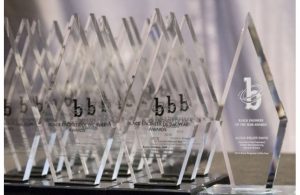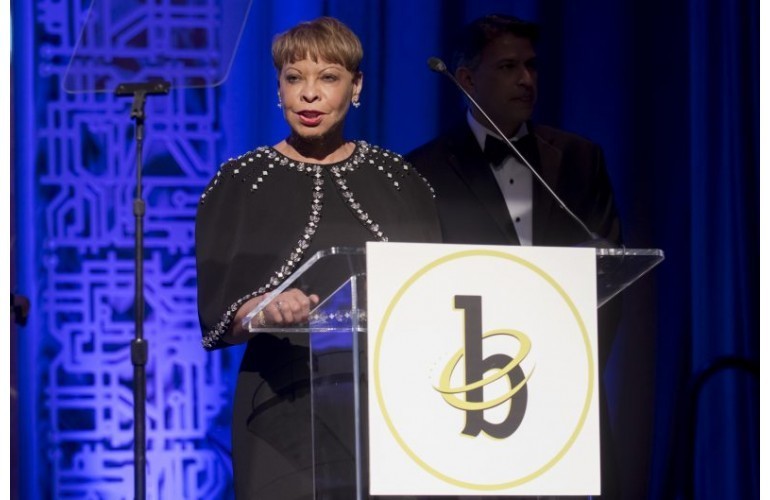 Subscribe
Subscribe- Login
-
/
Sign Up
- US Black Engineer
- >>
- News
- >>
- Spotlight BEYA Winners (2000-2009): Ms. Linda Gooden, 2006 Black Engineer of the Year
|
Getting your Trinity Audio player ready...
|
 Next February, during US Black Engineer magazine’s flagship conference, Black Engineer of the Year Award (BEYA) winners–there are now 33 in the United States–will join discussions on science, technology, engineering, and math (STEM) and recommit to BEYA’s mission: Create connections between students, educators, and STEM professionals while facilitating partnerships with individuals and their local STEM resources.
Next February, during US Black Engineer magazine’s flagship conference, Black Engineer of the Year Award (BEYA) winners–there are now 33 in the United States–will join discussions on science, technology, engineering, and math (STEM) and recommit to BEYA’s mission: Create connections between students, educators, and STEM professionals while facilitating partnerships with individuals and their local STEM resources.
Since Linda Gooden was named Black Engineer of the Year in 2006, she has played her part in supporting programs that get communities focused on the urgent need for more young people in STEM careers.
“I am honored to be among this distinguished list of nominees,” Gooden said receiving her award in 2006. “The twentieth anniversary of BEYA makes it even more special. There’s been a lot of change in the past 20 years. On the whole, progress has been made in workforce diversity, promotional opportunities, and work-life balance. The future offers even more opportunities. What we do today will set the stage for the next twenty years, just as those who walked down the aisle and accepted this award twenty years ago set the stage for us.”
Long before 2006, Gooden worked with STEM programs at Morgan State and Hampton universities, and served on the board of University of Maryland’s School of Engineering, Prince George’s Community College Foundation, Maryland Business Roundtable for Education, and Boy Scouts.
Now a retired executive of Lockheed Martin, she is currently Chair of the University System of Maryland Board of Regents, which she joined in 2009. She also serves on the board of Automatic Data Processing, Inc., one of the largest providers of business outsourcing solutions and a provider of integrated computing solutions to auto, truck, motorcycle, marine and recreational vehicle dealers throughout the world.
Her philanthropic activities drive donations and gifts to initiatives that help students continue the pursuit of STEM education, support them in the direction the nation is moving in, and where they want to be.
When Gooden was growing up on the south side of Youngstown, Ohio, she recalled a place where a person with a sixth-grade education could get a good job with a decent wage and raise a middle-class family. By the time she left high school, half the steel mills were gone. As a Youngstown State University student in the 1970s, Gooden witnessed the installation of a new IBM 360 computer.
“I was mesmerized by the size of the machine,” she told US Black Engineer magazine in 2006. “It took up six normal-sized rooms, though the computing power of what you have on your wrist today is probably greater than those they in those early machines. But it was clear to me that was the direction the nation was moving in and that’s where I wanted to be.”
That connection launched her career in information technology. Her first job at General Dynamics was writing code. Three years later, Martin Marietta (later merged with the Lockheed Corporation to form Lockheed Martin) offered her a job developing software for the Peacekeeper Missile. Then she got a chance to develop and install a human resource system. The experience set the stage for the rest of her corporate life in Federal IT Systems.
“The digital divide is real,” Gooden said. “As the country becomes more diverse, the problem is not just for us as African Americans. It’s a problem for the nation, as far as where the next generation of computer engineers and scientists is coming from.”
A tax-deductible donation to Foundation for Educational Development, Inc. (FEDI) supports the BEYA Conference scholarship program, which helps with financial assistance for students in STEM.
A $500 gift provides complimentary registration for the BEYA Conference, including travel, accommodation, meals, and registration. All gifts will be matched dollar-for-dollar by CCG, enabling twice as many students to enroll. Making a donation to FEDI is the best deal because all gifts are matched, thanks to CCG, co-host of the BEYA STEM Conference.
Read more: 33 Years at the Top: A Generation of Black Engineers
Mark E. Dean, 2000 Black Engineer of the Year (Director, IBM Research Laboratory)
Shirley Ann Jackson, 2001 Black Engineer of the Year (President and CEO, Rensselaer Polytechnic Institute)
Rodney O’Neal, 2002 Black Engineer of the Year (Executive Vice President of Delphi Automotive Systems)
Lydia Thomas, 2003 Black Engineer of the Year (President and CEO, Mitretek Systems)
Anthony James, 2004 Black Engineer of the Year (President and CEO, Savannah Electric)
William D. Smith, 2005 Black Engineer of the Year (President, Parsons Brinkerhoff Quade & Douglass)
Linda C. Gooden, 2006 Black Engineer of the Year (President, Lockheed Martin Information Technology)
Rodney C. Adkins, 2007 Black Engineer of the Year (Vice President, Development, IBM)
Reginald Van Lee, 2008 Black Engineer of the Year (Senior Vice President, Booz Allen Hamilton)
Wanda M. Austin, 2009 Black Engineer of the Year (President and CEO, The Aerospace Corporation)
John D. Harris, 2010 Black Engineer of the Year (Vice President, Contracts and Supply Chain, Raytheon)

